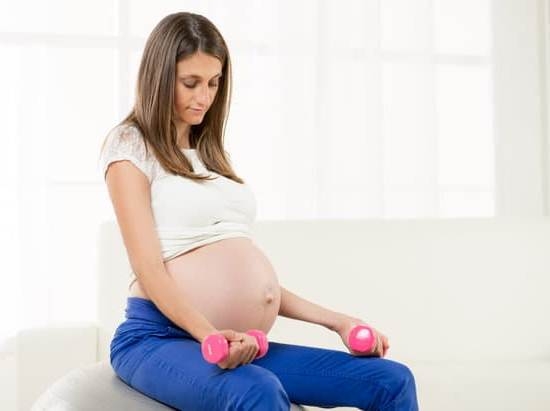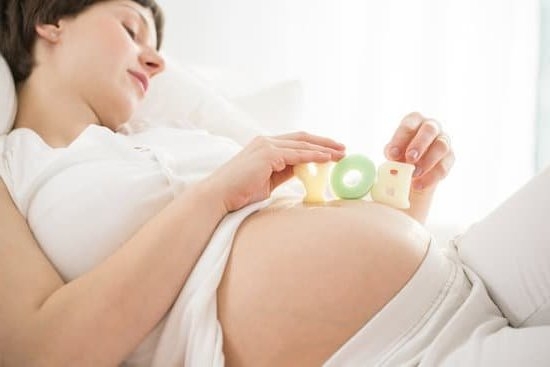How early can a doctor detect pregnancy with urine? Early detection of pregnancy plays a crucial role in prenatal care and planning for expectant mothers. Knowing that you are pregnant as soon as possible allows for timely medical interventions, monitoring of the pregnancy’s progress, and informed decision-making regarding healthcare options. When it comes to confirming pregnancy, urine tests are often the first step taken by healthcare providers.
Pregnancy tests work by detecting the presence of the hormone human chorionic gonadotropin (hCG) in the urine. This hormone is produced by the developing placenta shortly after embryo implantation in the uterus. The sensitivity of pregnancy tests varies among different brands and types, influencing how early they can accurately detect hCG in urine. Understanding the science behind these tests is essential in determining when a doctor can confirm pregnancy through urine analysis.
Factors such as the timing of implantation, individual differences in hCG levels, and the sensitivity of the test used all play a role in how early a doctor can detect pregnancy with urine. The timeline of when hCG levels become detectable can vary from woman to woman, impacting the accuracy and timing of test results.
By examining these factors closely, healthcare providers can provide better guidance on when to take a pregnancy test for accurate results and optimal prenatal care initiation.
How Pregnancy Tests Work
Pregnancy tests are an essential tool for women who suspect they may be pregnant. These tests work by detecting the presence of a hormone called human chorionic gonadotropin (hCG) in urine. Produced by the placenta shortly after a fertilized egg attaches to the uterine lining, hCG levels rise rapidly in early pregnancy. This hormone is crucial for maintaining the production of progesterone, which is necessary for sustaining the pregnancy.
The Science Behind Pregnancy Tests
At-home pregnancy tests typically consist of a strip or stick that is dipped into a sample of urine. The test contains antibodies that can detect the presence of hCG. When hCG in urine binds to these antibodies, it triggers a reaction that produces a visible line or symbol indicating a positive result. The sensitivity level of the test determines how low an hCG concentration it can detect, influencing how early it can accurately confirm a pregnancy.
Timeline for Detection
In general, most home pregnancy tests claim to be able to detect hCG levels in urine about 7-10 days after conception. However, this timeline can vary depending on individual factors such as the timing of implantation and differences in hormone levels among women.
A blood test at the doctor’s office can usually detect hCG even earlier than a home pregnancy test, sometimes as soon as 6-8 days after ovulation. Although early detection is possible with blood tests, doctors often recommend waiting until several days after a missed period to ensure accurate results and avoid false negatives.
Accuracy and Early Detection
While early detection of pregnancy through urine tests is beneficial for initiating prenatal care and making important healthcare decisions, it’s essential to consider factors that can influence the accuracy of results. Factors like dilution of urine due to excessive fluid intake, using expired or defective test kits, or testing too early before implantation occurs can lead to false negative results.
It’s advisable to consult with healthcare professionals if there are concerns about the accuracy of test results or uncertainty about when to test for pregnancy accurately.
Sensitivity of Pregnancy Tests
Pregnancy tests work by detecting the presence of the hormone human chorionic gonadotropin (hCG) in urine, which is produced by the placenta shortly after a fertilized egg attaches to the uterine lining. However, not all pregnancy tests are created equal in terms of their sensitivity to hCG levels. Some tests are more sensitive than others, meaning they can detect lower levels of hCG in urine earlier in pregnancy.
The sensitivity of a pregnancy test is usually measured in milli-International Units per milliliter (mIU/mL). Tests with higher sensitivity levels, such as those that can detect hCG levels as low as 20 mIU/mL or even lower, are more likely to provide accurate results earlier in pregnancy. These early detection tests are often marketed as “early result” or “early response” tests, indicating their ability to detect pregnancy sooner than standard tests.
It is important for individuals seeking to detect pregnancy early to choose a test with higher sensitivity levels if they want to get reliable results sooner. By selecting a test that can detect lower hCG levels, individuals can potentially find out about their pregnancy at an earlier stage. This information can be crucial for starting prenatal care promptly and making informed decisions about healthcare and planning for the future.
How Early Can a Doctor Detect Pregnancy With Urine
Pregnancy detection through urine tests has revolutionized the way women confirm their pregnancy status, providing a quick and convenient method for early detection. The presence of human chorionic gonadotropin (hCG) hormone in urine is a key indicator of pregnancy, as it is produced by the placenta after implantation occurs. Understanding how early a doctor can detect pregnancy with urine involves knowing when hCG levels rise to a detectable range.
Here is a general timeline of when hCG levels can be detected in urine after conception:
- Approximately 7-10 days after conception: At this early stage, hCG levels may not be high enough to be detected by most over-the-counter pregnancy tests.
- 10-14 days after conception: Most sensitive pregnancy tests may be able to give accurate results within this timeframe, although some may still produce false negatives.
- 2 weeks after ovulation: By this point, most at-home pregnancy tests should be capable of detecting hCG in urine if conception has occurred.
It’s important to note that individual differences can impact the accuracy of early detection. Factors such as the timing of implantation, variations in hCG production rates among women, and differences in the sensitivity of the test used can all influence how soon a doctor can confirm pregnancy with urine testing. Additionally, factors like hydration levels can dilute hCG concentrations in urine and affect test results.
Factors Affecting Early Detection
When it comes to detecting pregnancy early with urine tests, several factors come into play. One crucial factor is the timing of implantation. After fertilization, it can take about six to twelve days for the fertilized egg to implant itself into the uterine lining. Until implantation occurs, hCG levels may not be detectable in urine, making it essential for women to wait until after a missed period for more accurate results.
The sensitivity of the pregnancy test used also plays a significant role in early detection. Some tests are more sensitive and can detect lower levels of hCG in urine earlier than others. For instance, early detection pregnancy tests claim they can detect pregnancy up to six days before a missed period. These tests have a lower threshold for detecting hCG compared to standard tests, increasing the likelihood of detecting pregnancy at an earlier stage.
Individual differences in hormone levels can further impact how early a doctor can detect pregnancy with urine. Every woman’s body produces and metabolizes hormones differently, which means that hCG levels can vary significantly from one person to another. Factors such as overall health, age, weight, and underlying medical conditions can all affect hormone levels. These individual variations underscore why some women may receive positive results sooner than others despite testing around the same time after conception.
| Factors Affecting Early Detection | Impact on Pregnancy Detection |
|---|---|
| Timing of Implantation | Delays detection until after implantation occurs in uterus. |
| Sensitivity of Test Used | Determines how low hCG levels must be for a positive result. |
| Individual Hormone Levels | Vary among women due to differences in metabolism and health. |
Importance of Early Detection
Pregnancy is a transformative time in a woman’s life, and early detection plays a crucial role in ensuring a healthy pregnancy journey. Detection of pregnancy as soon as possible allows expectant parents to start planning for their new arrival, make necessary lifestyle adjustments, and seek prenatal care promptly. The sooner pregnancy is confirmed, the sooner individuals can begin making informed decisions about their healthcare to support the health and well-being of both mother and baby.
One of the most common methods for detecting pregnancy early is through urine tests that detect the hormone hCG, or human chorionic gonadotropin. Home pregnancy tests are widely available over-the-counter and can provide results within minutes. These tests work by detecting hCG levels in urine, which are typically present in higher concentrations in the early stages of pregnancy. A doctor can also use a similar urine test to confirm pregnancy during an office visit.
The accuracy of at-home pregnancy tests has greatly improved over the years, allowing for early detection of pregnancy. In general, these tests can detect hCG levels as early as 7-10 days after conception when implantation occurs. Doctors may recommend waiting until after a missed period to take a test to ensure accurate results. However, advancements in technology have made it possible to detect pregnancy even earlier than this timeframe with high sensitivity tests on the market.
| Early Pregnancy Test | Timeframe for Detection |
|---|---|
| Standard Home Pregnancy Test | 7-10 days after conception |
| High Sensitivity Test | Can detect as early as 5-6 days before missed period |
False Negative Results
When it comes to pregnancy tests, especially in the very early stages of pregnancy, there is a possibility of receiving a false negative result. This can be confusing and frustrating for individuals who suspect they may be pregnant but get a negative outcome on their test. Several factors can contribute to false negatives, including testing too early, using a less sensitive test, diluted urine, or errors in administering the test.
Factors Contributing to False Negative Results
- Testing Too Early: One of the primary factors that can lead to a false negative result is testing too early in the pregnancy. The levels of hCG may not be detectable by certain tests until after implantation occurs, which typically happens around 6-12 days after fertilization.
- Using Less Sensitive Tests: Some pregnancy tests are more sensitive than others when it comes to detecting hCG levels in urine. Using a less sensitive test may result in a false negative if hCG levels are still low during the early stages of pregnancy.
- Diluted Urine: When taking a home pregnancy test, using diluted urine can affect the accuracy of the results. It is recommended to use first-morning urine as it is more concentrated and contains higher levels of hCG if you are indeed pregnant.
It is essential to remember that even with advancements in technology and the sensitivity of pregnancy tests improving over time, false negatives can still occur. In case you receive a negative result but continue experiencing symptoms or miss your period, it’s advisable to wait a few days and retest or consult with your healthcare provider for further evaluation.
Understanding the potential for false negatives can help manage expectations and ensure accurate results when trying to determine if you are pregnant.
Coping With Uncertainty
- If you receive a negative result but still suspect you might be pregnant due to persistent symptoms like nausea or fatigue, consider reaching out to your healthcare provider for additional testing.
- Remember that stress and anxiety regarding uncertain results can also impact your overall well-being. Take care of yourself emotionally and mentally while navigating through this period of uncertainty.
- Seek support from loved ones or online communities where individuals share similar experiences. Connecting with others who understand what you’re going through can provide comfort and reassurance as you await confirmation of your suspected pregnancy status.
Conclusion
In conclusion, the process of early pregnancy detection plays a vital role in ensuring optimal maternal and fetal health outcomes. Understanding how early a doctor can detect pregnancy with urine is crucial for women who are planning to start or expand their families. By recognizing the significance of timely detection and being aware of the factors that can influence it, individuals can take proactive steps towards initiating prenatal care and making informed decisions regarding their healthcare journey.
The science behind pregnancy tests, particularly the detection of hCG levels in urine, provides a foundation for early confirmation of pregnancy. With advancements in technology, various tests offer different levels of sensitivity that impact the accuracy and timing of detecting hCG in urine samples. This knowledge empowers individuals to choose appropriate testing methods based on their needs and increase the likelihood of an early diagnosis.
Ultimately, the emphasis on early pregnancy detection cannot be overstated. It paves the way for timely prenatal care, monitoring for any potential complications that may arise, and equips expectant mothers with essential information to guide their healthcare decisions. Despite the possibility of false negative results due to several variables, staying vigilant about monitoring one’s reproductive health status remains paramount for promoting a healthy pregnancy and ensuring the well-being of both mother and child.
Frequently Asked Questions
Can Doctors Urine Pregnancy Tests Detect Earlier?
Doctors Urine Pregnancy Tests can detect pregnancy early on, as they are designed to pick up the hCG hormone released by a fertilized egg. However, it is still recommended to wait until after a missed period for more accurate results.
How Early Can a Urine Pregnancy Test Be Positive?
A Urine Pregnancy Test can show a positive result as early as 10-14 days after conception. However, the timing may vary depending on factors such as the sensitivity of the test and the levels of hCG in your body.
Can Doctors Tell if You Are Pregnant From a Urine Sample?
Doctors can definitely tell if you are pregnant from a urine sample. Urine tests done at the doctor’s office are similar to home pregnancy tests but may be more sensitive and accurate. The presence of hCG hormone in your urine confirms pregnancy.

Welcome to my fertility blog. This is a space where I will be sharing my experiences as I navigate through the world of fertility treatments, as well as provide information and resources about fertility and pregnancy.





